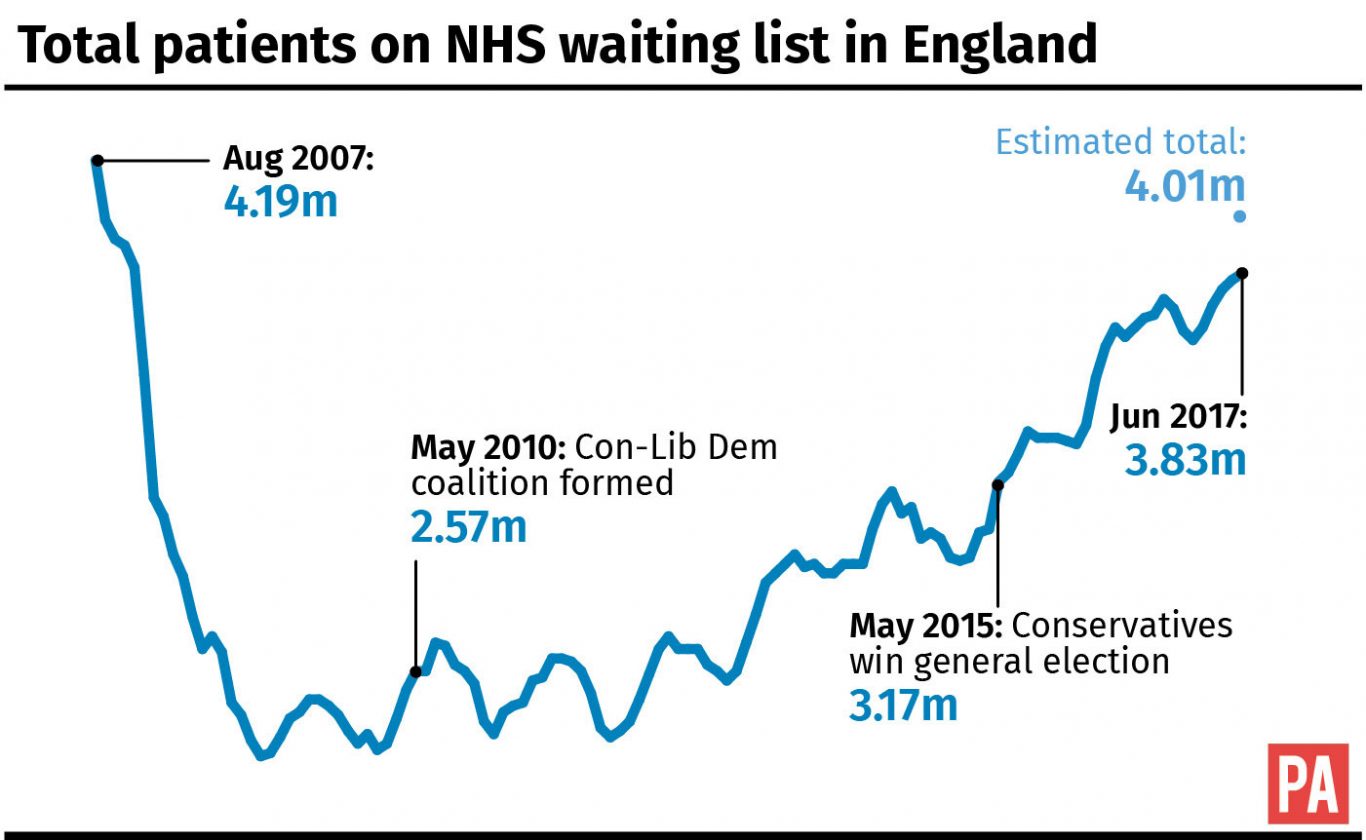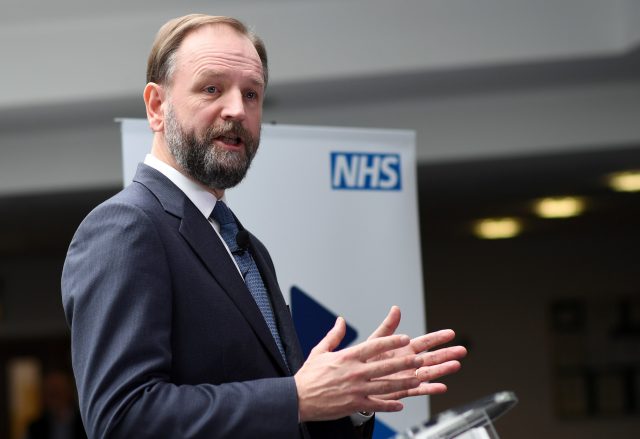One in 10 to be on NHS waiting lists by 2020, warns NHS England chief
Simon Stevens warned that if no more money is allocated to the NHS, the number of patients waiting for surgery will rise to five million by 2020/21.

One in 10 people in England will be on the NHS waiting list in three years, the head of NHS England has said.
In a desperate plea for more cash, Simon Stevens warned that if no more money is allocated to the NHS then the number of patients waiting to be admitted to hospital in England to have surgery will rocket to five million by 2020/21.

He said that under current funding levels, the NHS “can no longer do everything that is being asked of it”.
Mr Stevens told the NHS Providers conference in Birmingham that expansion plans for mental health and improvements in cancer care could stall.
He also indicated that controversial rationing policies adopted in some parts of the NHS could be rolled out nationally without more money.
Mr Stevens said he was bound by the health service’s duty of candour to set out the consequences of what would happen without more funds.
He drew on a new analysis by the Health Foundation, the King’s Fund and the Nuffield Trust which calculated that the NHS needs £4 billion more next year to prevent patient care from deteriorating.
He called on Brexiteers to make good on the Vote Leave campaign pledge of £350 million more each week to spend on the NHS.
Mr Stevens told delegates at the conference: “The budget for the NHS next year is well short of what is currently needed to properly look after our patients and their families in their time of greatest need.
“After seven years of understandable but unprecedented constraint, on the current budget outlook, the NHS can no longer do everything that is being asked of it.”
He added: “Our duty of candour requires us to explain the consequences of these decisions to help inform the difficult choices that will be made in the years ahead.

“It boils down to this – on the current budget, far from growing the number of nurses and other frontline staff, in many parts of the country next year, hospitals, community health services and GPs are more likely to be retrenching and retreating.
“On the current funding outlook, it is going to be increasingly hard to expand mental health services or improve cancer care – services the public need and rightly want.
“And crucially, on the current funding outlook, the NHS waiting list will grow to five million people by 2021. That’s an extra million people on the waiting list. One in 10 of us waiting for an operation – the highest number ever.”
Mr Stevens added: “Of necessity, this year the NHS has reluctantly had to temporarily limit the annual increase of waiting list operations, to protect funding for A&E, mental health services and GP care.
“To decide that should now be a permanent decision would be to turn back a decade of progress – a decade in which we have cut the wait for an NHS operation from over 18 months to under 18 weeks – and this would mean the Government having to publicly, legally abolish patients’ national waiting times guarantees.”
Just over four million patients are on the waiting list.
Mr Stevens added: “Some may say, ‘aren’t we spending at the European average?’ Well only if you think that bundling austerity-shrunken Greek and Portuguese health spending should help shape the benchmark for Britain.
“If instead you think that modern Britain should look more like Germany or France or Sweden then we are underfunding our health services by £20 billion to £30 billion a year.
“Rather than our criticising these clear Brexit funding commitments to NHS patients – promises entered into by Cabinet ministers and by MPs – the public want to see them honoured.”
Health Secretary Jeremy Hunt, who also spoke at the conference, said: “I think the scale of additional investment the NHS needs is high because in 10 years’ time we will have a million more over-75s to look after.
“If you look at the track record of the Government you can see that our priority has been the NHS as the economy has recovered, you can see significant increase.
“The Prime Minister and the Chancellor are very aware of the financial pressures that people like the King’s Fund are talking about. What is much more challenging is the national financial context.
“There is also an awful lot that all of us in the NHS can do to improve the quality of patient care and I think that it is a mistake if we say that the entire future of the NHS hangs on a decision Philip Hammond makes in the Budget in two weeks’ time.”





